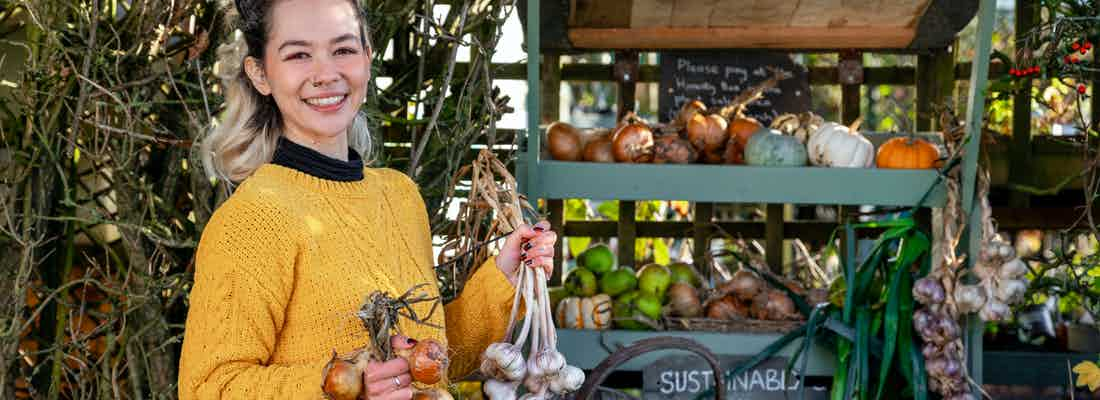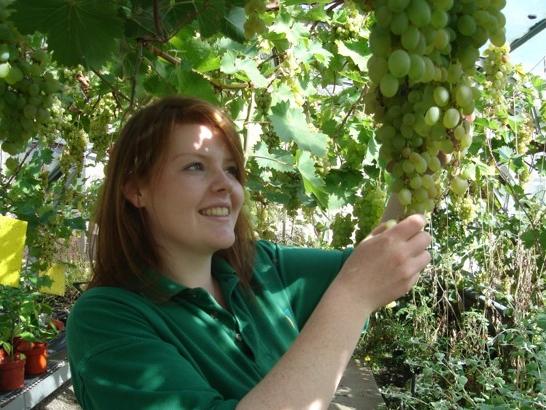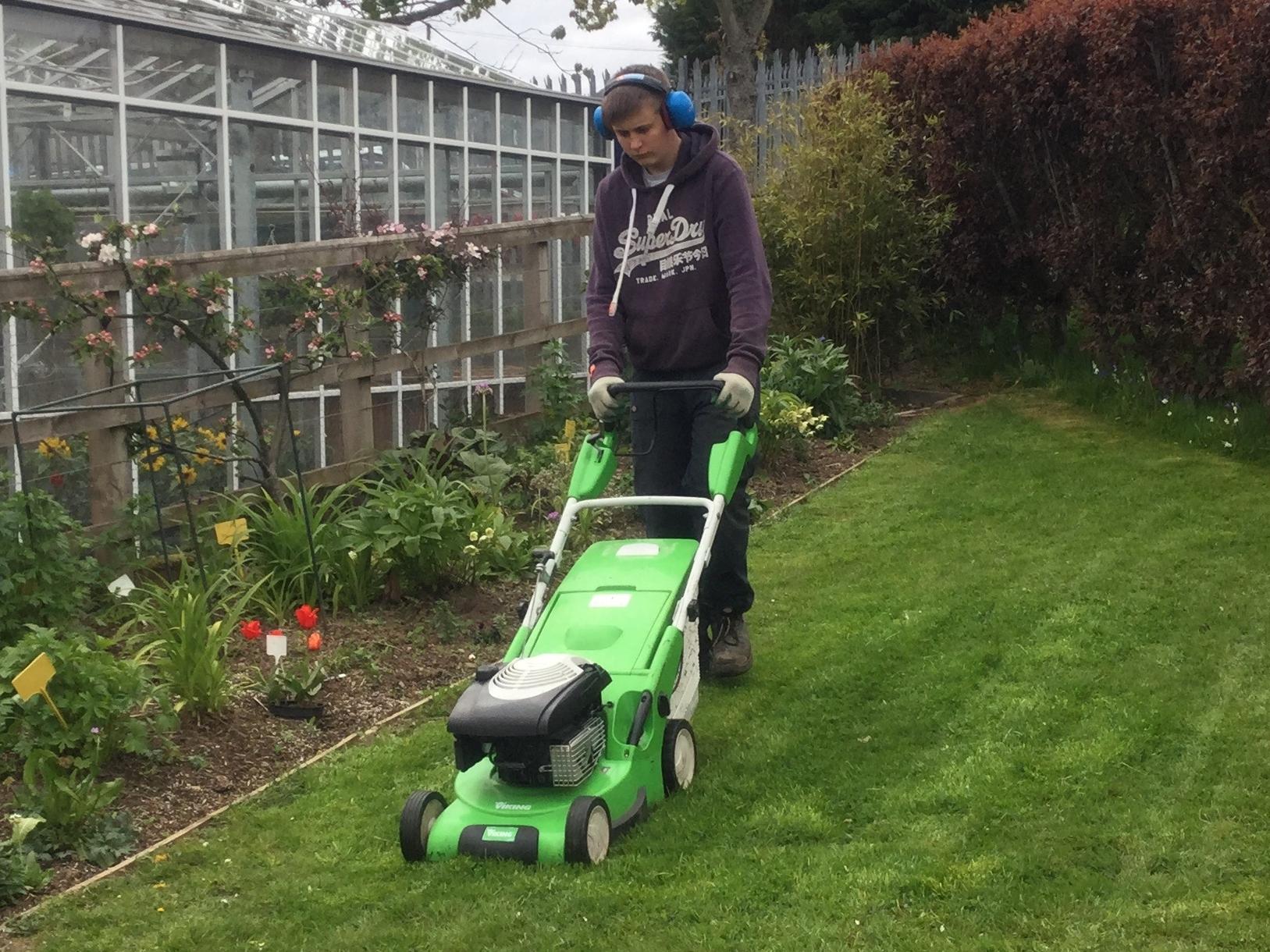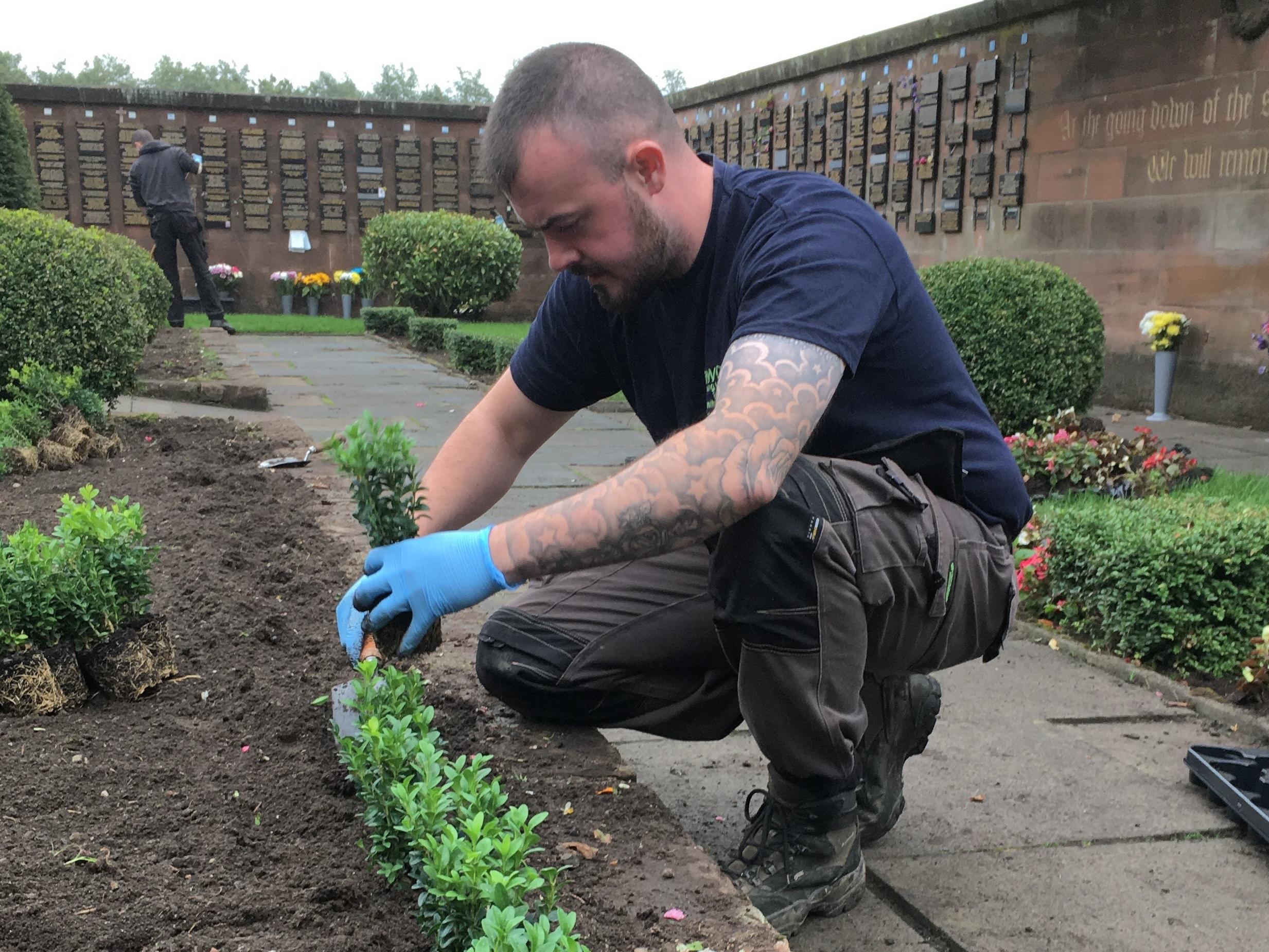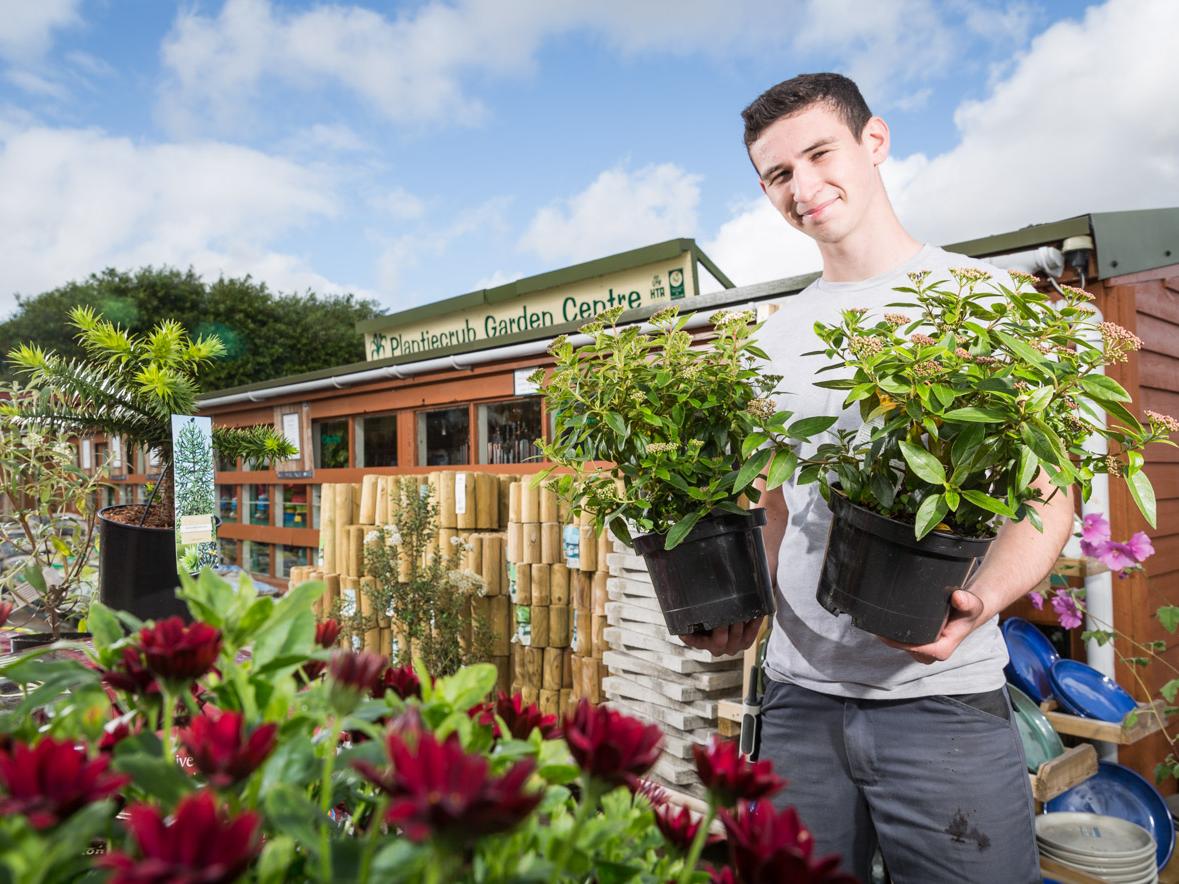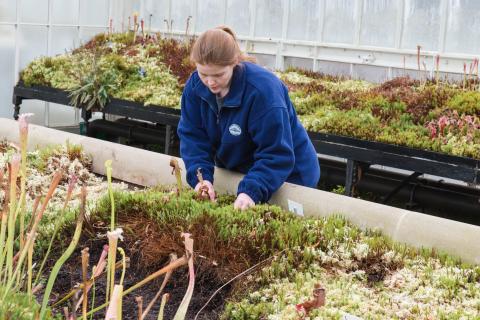
Horticultural Production Supervisor
Horticulture Production Supervisors work in food production or in ornamental plant production, including ornamental plant nurseries, fruit and vegetable production farms, cut flower grower farms, or other sites that produce plants.
Ornamental plants can be produced to end up in your local park or the shelves of garden centres. The trees, shrubs and flowers we all enjoy looking at are grown at ornamental plant nurseries but can’t be eaten.
Fruit and vegetable production for apples, pears, plums, cherries, raspberries, strawberries, blackcurrants, carrots, potatoes, broccoli, salads, tomatoes, cucumbers, peppers, mushrooms, watercress takes place in fruit and vegetable nurseries and farms.
Both areas of production may include either field production or protected production in glasshouses or plastic tunnels.
The technology involved in growing ornamental and edible plants, plus the job opportunities from management to marketing make working on an ornamental or fruit or veg nursery a rewarding career.
Horticultural Production Supervisors can be involved in:
- Ensuring plants are grown correctly, including seed sowing and cultivation
- Ensuring plants are nurtured by watering, weeding, pruning, and nutrients
- Identifying and dealing with pests and diseases
- Identifying produce to be picked and packaged
- Ensuring temperature, light and humidity in glasshouses are right
- Supervising workers to produce, pick and pack the final product.
They can specialise within a specific technical area such as irrigation, soil or propagation and become a technician in that area.
Many of these specialist areas can be taught on the job at farm or production nurseries, or as part of a wide range of horticultural courses, including degrees, diplomas and distance learning.
Working Conditions
The hours vary depending on the type of farm or production nursery and on the season. In large farms or production nurseries staff may work a standard full-time week. In many businesses early starts are common in the summer months.
In both types of production, weekend work, late evenings and overtime are common. Part-time and casual jobs are available.
The work is rewarding and can be physically demanding.
Salary
Salaries vary with experience, qualifications and between companies, but here's a guide to what you can expect.
£11,000
£20,000
Getting started
Customer service experience and skills are important and some employers may also look for this type of previous experience or qualifications in retail or sales.
As well as Modern Apprenticeships, full-and part-time courses are available at many colleges. These provide theory and practical experience, and give a good grounding in horticulture.
What experienced workers can do
- Ensure materials and sow seed are prepared correctly
- Control pests, diseases and disorders
- Ensure sites are prepared and resources are available for planting crops
- Ensure crops are harvested correctly using the most appropriate method
- Ensure nutrients are provided correctly to crops
- Ensure teams are performing
- Good communication skills.
Personal qualities you should have
- Be able to work alone or in a team
- Have good interpersonal skills and be able to communicate with colleagues
- Have an interest in plants and their production
- Flexibility
- Mobility.
Next steps
There are a variety of opportunities within the industry and an increasing demand for experienced workers.
If you supervise a team of Horticultural Production Workers you could progress to a management position such as Quality Assurance Manager or Nursery Manager.
If you specialise in a particular area such as soil, nutrient, propagation you could progress into Propagation Scientist, Seed Scientist, Plant Pathologist or Agronomist.
Useful links
British Association of Landscape Industries
British International Golf Greenkeepers Association
Greenkeepers Training Committee

